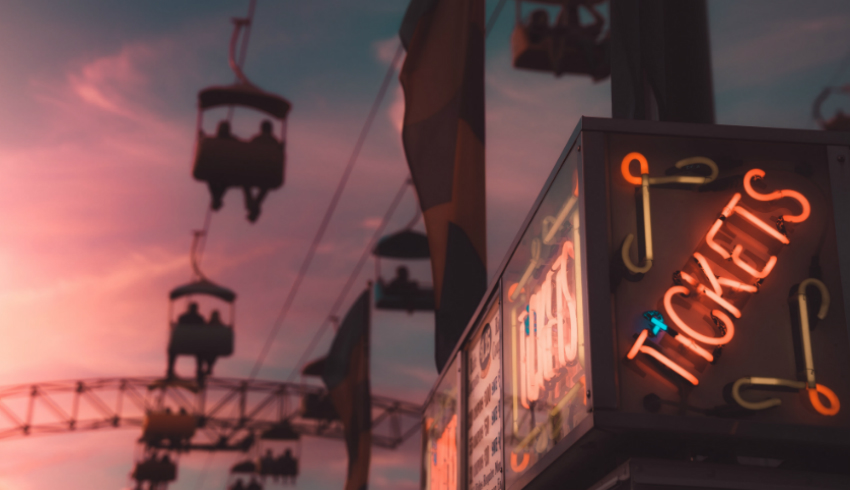Commercial Insights

It has long been the case that tickets for sold-out events re-enter the marketplace on ticket resale sites. One such site, Viagogo, has attracted significant legal criticism.
Avid fans know of the agonising experience of trying to locate last-minute tickets to see their favourite artist, only to see them gone in seconds. On the surface, Viagogo might seem like a good option to buy and resell tickets. The website provides a marketplace for people to resell tickets (albeit at a steep mark-up) and takes a commission for itself. Prominent investors in the company include tennis stars Steffi Graff and Andre Agassi, LVMH chief executive Bernard Arnault and financier Jacob Rothschild.
But despite its popularity, the site hasn’t been without controversy, especially for alleged practices such as jacking up ticket prices, selling tickets for non-existent events and charging exorbitant fees unbeknown to consumers. These accusations have promped the Scottish Rugby Union, Sainsburys, and the ATP tennis tour to cut ties with the company, and Viagogo continues to face a tremendous amount of legal pressure from British regulators to change its business model.
Viagogo’s perilous journey—with a few legal stumbles along the way
2006 – Eric Baker, the co-founder of the US-based ticket website StubHub, founded Viagogo in London to provide an online ticket marketplace that would allow consumers to buy and sell tickets to sports, music, theatre and comedy events. Although Viagogo sold some tickets at face value, the site eventually became a target for professional touts, who used it to inflate ticket prices for many events.
November 2011 – Viagogo sold personalised tickets to German customers for the band Take That’s 2011 tour, but some customers were denied entrance to concerts in Hamburg and Munich. As a result, a German court banned Viagogo from claiming that tickets sold on its website are “100% guaranteed”.
May 2012 – After liquidating its assets, Viagogo moved its operations from the UK to Switzerland, effectively making it exempt from a British law that bans the resale of tickets for the Olympic Games.
November 2012 – Viagogo facilitated the sale of fake tickets to a Mumford & Sons concert in Portsmouth. Although the face value of the tickets was £23.50, Viagogo sold the tickets on its secure marketplace for £200, but later told the BBC that this was a rare occurrence and all buyers would be offered a refund or tickets to a future event.
September 2013 – Viagogo is launched in Australia. In the same month, it was revealed that Britons had lost £50 million to ticket fraud over a 12-month period, with Coldplay, The Rolling Stones and One Direction found to be the acts most often targeted by ticket fraudsters.
September 2016 – After advertising tickets that were not yet for sale and refusing to comment, Viagogo was threatened with legal action by the English Cricket Board, and the following month the site was accused of “callous profiteering” for reselling tickets to a Peter Kay gig being held to benefit Cancer Research UK.
August 2017 – The Australian Competition and Consumer Commission (ACCC) initiated legal action against Viagogo, alleging “false or misleading representations”, along with “deceptive conduct by failing to disclose substantial fees included in the price of tickets”.
May 2018 – The Advertising Standards Authority (ASA) requested that National Trading Standards conduct an investigation of Viagogo’s alleged breaches of UK advertising rules regarding making additional fees clear, but by the end of May Viagogo had failed to do so. Also that month, the UK’s minister of state for digital and culture told BBC Radio 5 Live listeners who were planning to buy tickets from secondary sites not to choose Viagogo.
November 2018 – In what was considered a landmark legal victory, a court order went into effect in the UK forcing Viagogo to give consumers more information about the tickets they are buying, including the identity of the touts advertising the tickets.
February 2019 – The Daily Mail reported that La Forza del Destino tickets were being resold on Viagogo for thousands of pounds, more than ten times their face value.
March 2019 – The Competition and Markets Authority announced that Viagogo has not fully complied with the terms of a court order designed to protect consumers and it’s seeking to have the company found in contempt of court. Viagogo insisted it was complying with the CMA’s demands.
April 2019 - A Glasgow woman realised she was duped into paying £644 for six tickets that should have cost a mere £130, after her brother found plenty of tickets to ‘Seven Drunken Nights: the Story of the Dubliners’ on the theatre’s booking site for just £20 each.
Despite mounting criticism, Viagogo continues to defend its practices, although other ticket sites seem to be trying to change. The resale ticket outlet Vibe Tickets recently launched Vibe Verified, which claims to give customers the opportunity to distinguish between verified Vibe sellers and ordinary fan sellers. Skiddle is also launching its own ticket exchange platform that will allow buyers to return and resell tickets to customers, risk free.
But according to the website money.co.uk, a fan’s best bet is to purchase tickets at face value through an official ticket outlet such as Seetickets.com, Ticketmaster, 365Tickets, and Ticketline.co.uk. These outlets are authorised by the venue to sell tickets directly to consumers, guaranteeing their authenticity.
Academy tools to help you get a job
-

Free Watson Glaser Practice Test
Understand the test format, compare your performance with others, and boost your critical thinking skills.
